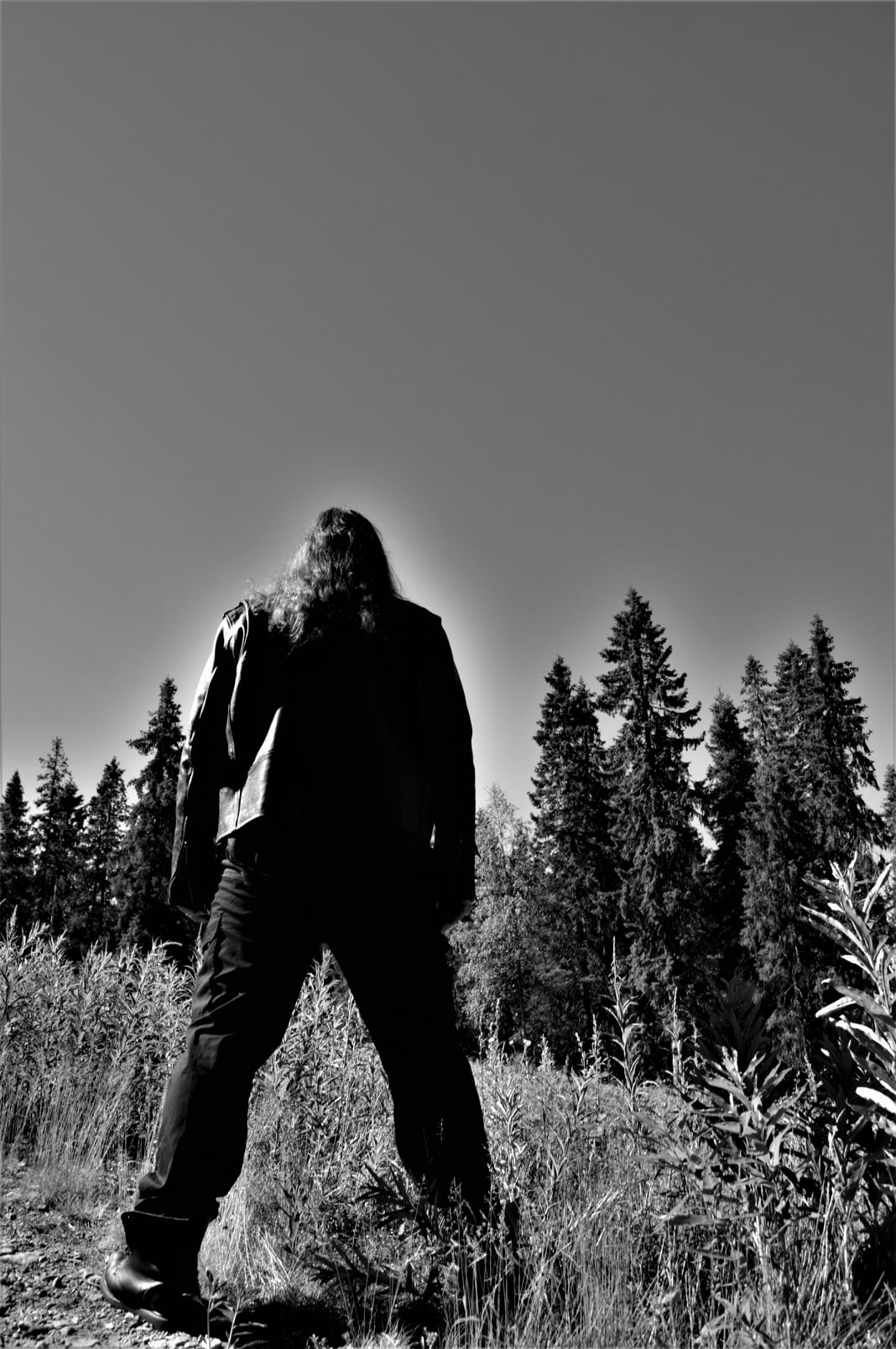
February 21, 2025| Sam Hall | RELEASE REVIEW

Häxkapell – Om Jordens Blod Och Urgravens Grepp | Album Review
Some lovely Gregorian chant meets us as we load up Halo: Combat Evolved's title menu screen, wait, it's Häxkapell's Om Jordens Blod Och Urgravens Grepp (Of earth's blood and the grave's grasp). It’s a title as catchy in English as it is in Swedish.
The sophomore album from the Swede melodic black metallers Häxkapell is not as intimidating as one might assume. It’s the sort of album one might listen to before they do their first black metal band photoshoot, corpse paint-laden and blunted medieval weapons bared in the woods before they ring one of their mothers to come and pick them up because it’s gotten just a bit too dark and scary. This isn’t a criticism of Häxkapell, the music is aggressively capable. ‘In Satan’s Rotter’, which, no, is not a Berlin Technoclub you wouldn’t walk into with someone else’s shoes, Häxkapell‘s harsh riffs and bass-heavy vocals trundle along so pleasantly you can almost smell the woodsmoke, and taste the candle-lit hearty stews complimented by flagons of rich ale in the Nordic medieval inn that the music transports you to.
The vocals hit that perfect pitch, which is often so hard to source within black metal, without turning into a Dani Filth-style screech which could make dogs cry. Häxkapell’s harsh vocals sound like they literally tortured the vocalist with a car battery within the booth, and that’s how black metal is supposed to sound. The listener is looking for anguish, not angst. The next track, ‘Metamorfos’, builds with the confidence of a man who has never once known what it means to truly suffer. Haxkapell is applauded for this because pain is evidently something they are keen to convey, and they do so handily. As the track progresses, a Soulslike health bar could appear before the listener and is then revitalised just as it is almost wholly denigrated, with lyrics now as well – this boss fight isn’t over yet.
As the album next progresses into ‘Urgavens Grepp Ar Ha Hart Och Kallt’, Häxkapell attempts to batter their fans with some kind of mad insistence, and the tempo picks up considerable pace, whilst key signatures of acoustic woodwind instruments pacify the listener with an almost melancholic sadness. The contrasts are tantalisingly well balanced.
 Photo Credit:
Photo Credit: Haxkapell
And so, Häxkapell decides to treat us to an intermission in the form of ‘Hem’. Acoustic chords are delicately noodled with to the backdrop of a haunting flute, as the singer drops another baritone menacingly. If the listener does not speak Swedish, they would be forgiven for assuming the almost whispered lyrics tell the story of a Nordic shepherd whose entire family has recently succumbed to the plague and his entire flock of sheep has been stolen by the Gauls. It’s all somberly pleasant.
‘Vindar Fran Forr’ begins to move the album’s message into Amon Amarth‘s musical territory, complimented by the vocalist’s note-perfect blackened shrieks. This album can tell you a story which powers the imagination -unless you can speak Swedish, of course, then it’s just telling you a story- with absolute authority. Bored and disinterested monotone female vocals close out this track creating an atmosphere not too dissimilar to the average black metal fan’s most recent Hinge date.
Finally, Häxkapell’s second offering climaxes with ‘Den Sanna Modern Tala’ which is the fitting culmination of the rest of the album, at 11 minutes long, it gives the listener ample time to reflect on their journey thus far that Häxkapell has taken us along on. Music is supposed to be about transportation, if that was Häxkapell’s goal with this album, they achieved it wholeheartedly. Fans of Saor should love this album, fans of Darkthrone should at least like it and fans of heavy music who have so far avoided the rabbit hole that is black metal, should at least consider giving it a go for its accessibility and transportive abilities.



